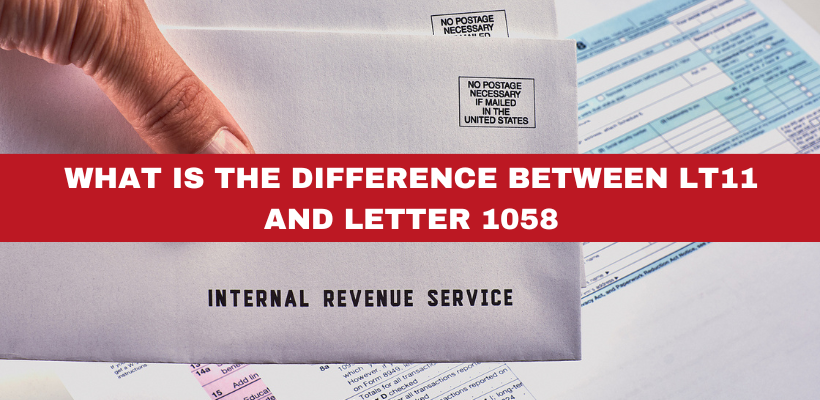If you’ve received an LT11 or Letter 1058 from the IRS, do not ignore it. These are both serious notices warning you that the IRS intends to seize your assets if you don’t take action. But what exactly is the difference between these two?
Same Message, Different Source
Both LT11 and Letter 1058 serve the same purpose: they’re a Final Notice of Intent to Levy. Be it your wages, bank accounts, or other assets. They also inform you that you have the right to request a Collection Due Process (CDP) hearing within 30 days. And that hearing is your chance to stop or delay any collection activity while you work out a solution.
So What’s the Difference between LT11 and Letter 1058?
It all comes down to who sends the letter.
LT11 is sent out automatically by the IRS’ central system, known as the Automated Collection System or ACS. This method is typically used for those cases that haven’t been assigned to a specific IRS employee.
On the other hand, Letter 1058 comes from a local IRS Revenue Officer that is assigned to your case. This is more common in complex or high-dollar cases where the IRS is taking a more hands-on approach.
Why Do LT11 or Letter 1058 Matter?
Regardless of which version you receive, the consequences are the same. You must act within 30 days to protect your rights and avoid enforced collection. That means setting up a payment plan, submitting an Offer in Compromise, or requesting a CDP hearing.
Final Thoughts
Whether you received an LT11 or a Letter 1058, the message from the IRS is clear: they are prepared to take action to collect what you owe. These letters are not something to brush off or delay. Understanding the nature of these letters is the first step, but the most important thing is how you respond and how quickly you do it.
Here’s What You Can Do Next
If you’ve received either of these letters and aren’t sure what to do next, don’t go it alone. Contact the Law Office of Steven N. Klitzner for help understanding your options and stopping aggressive IRS collection actions before they begin.







 Steven N. Klitzner, P.A. is a tax attorney based in Miami, Florida. He has been practicing tax law for over 40 years, and currently holds a 10.0 rating by Avvo. Mr. Klitzner was appointed to the IRS Service Advisory Council in 2021 and is...
Steven N. Klitzner, P.A. is a tax attorney based in Miami, Florida. He has been practicing tax law for over 40 years, and currently holds a 10.0 rating by Avvo. Mr. Klitzner was appointed to the IRS Service Advisory Council in 2021 and is... 





